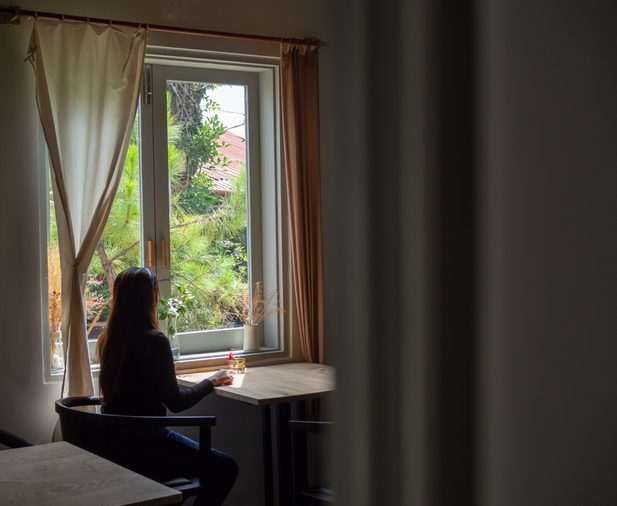
You don’t move enough
Our bones are alive, and the more you use them, the stronger they will be; if they don’t get used, they can become wasted. Weight-bearing exercise, even just walking, and strength training, are all important to bone health. Check out these scientist-approved ways to slash your osteoporosis risk.
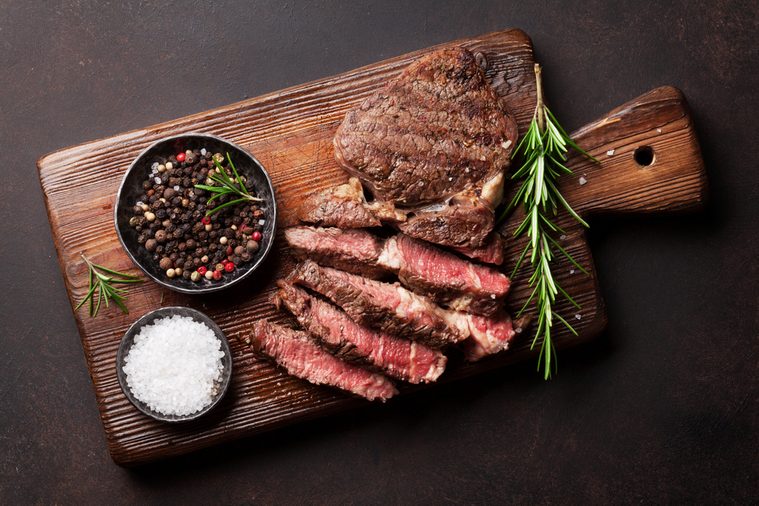
You love your steak
Eating too much protein can cause the kidneys to excrete more calcium which can contribute to a decrease in bone density, leading to osteoporosis. However, some studies have shown protein causes the body to absorb more calcium, which is why there is extra to get rid of. As with most everything when it comes to your health, it’s best to eat meat in moderation.
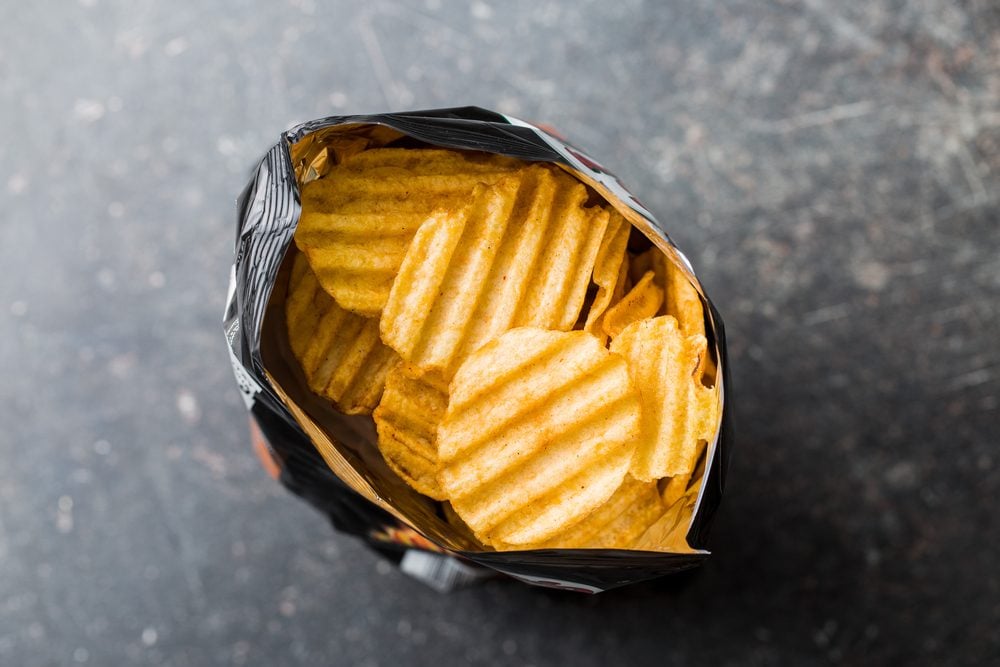
You eat salty snacks
A study from Japan showed that postmenopausal women who had high sodium intakes were more than four times as likely to have a fracture as those with low sodium intakes. That’s because as the kidneys excrete the sodium, calcium is drained from the bloodstream. Watch out for these secret signs your bones could be in trouble.
You shun sunlight
According to the American National Osteoporosis Foundation, adults under 50 need 400 to 800 IU of vitamin D daily and adults 50 and older need 800 to 1,000 IU. If you’re not getting enough vitamin D naturally, from the sun, supplementation can be essential. Talk to your doctor about your specific needs based on where you live, what time of year it is, and which vitamin D–rich foods you eat.
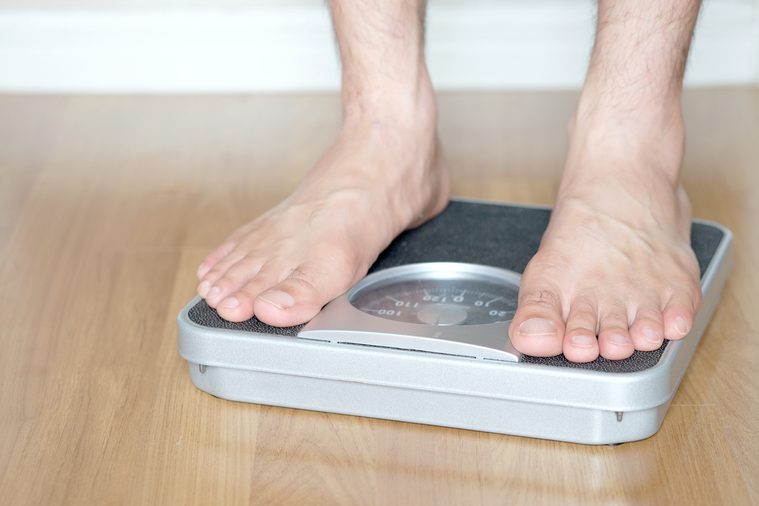
Weight loss
Reaching a healthy weight is good, but surprisingly, losing too much weight can harm your bones. A body mass index (BMI) of less than 18.5 is considered a risk factor for osteoporosis. According to a study from the Harvard T.H. Chan School of Public Health, just a one unit increase in BMI (approximately five to eight pounds) decreased the risk of bone loss by 12 percent. Look for some more sneaky signs you might have osteoporosis.

You unwind with wine
Low levels of alcohol consumption may be good for your bones, according to a study from Oregon State University, but more than a couple of drinks a day has the opposite effect. Too much alcohol can also increase cortisol levels, which can lead to lower bone mineral density. Women, particularly, are at risk as alcohol can cause a decrease in estrogen levels that can lead to osteoporosis. As well, alcohol is toxic to the cells that become bone cells.
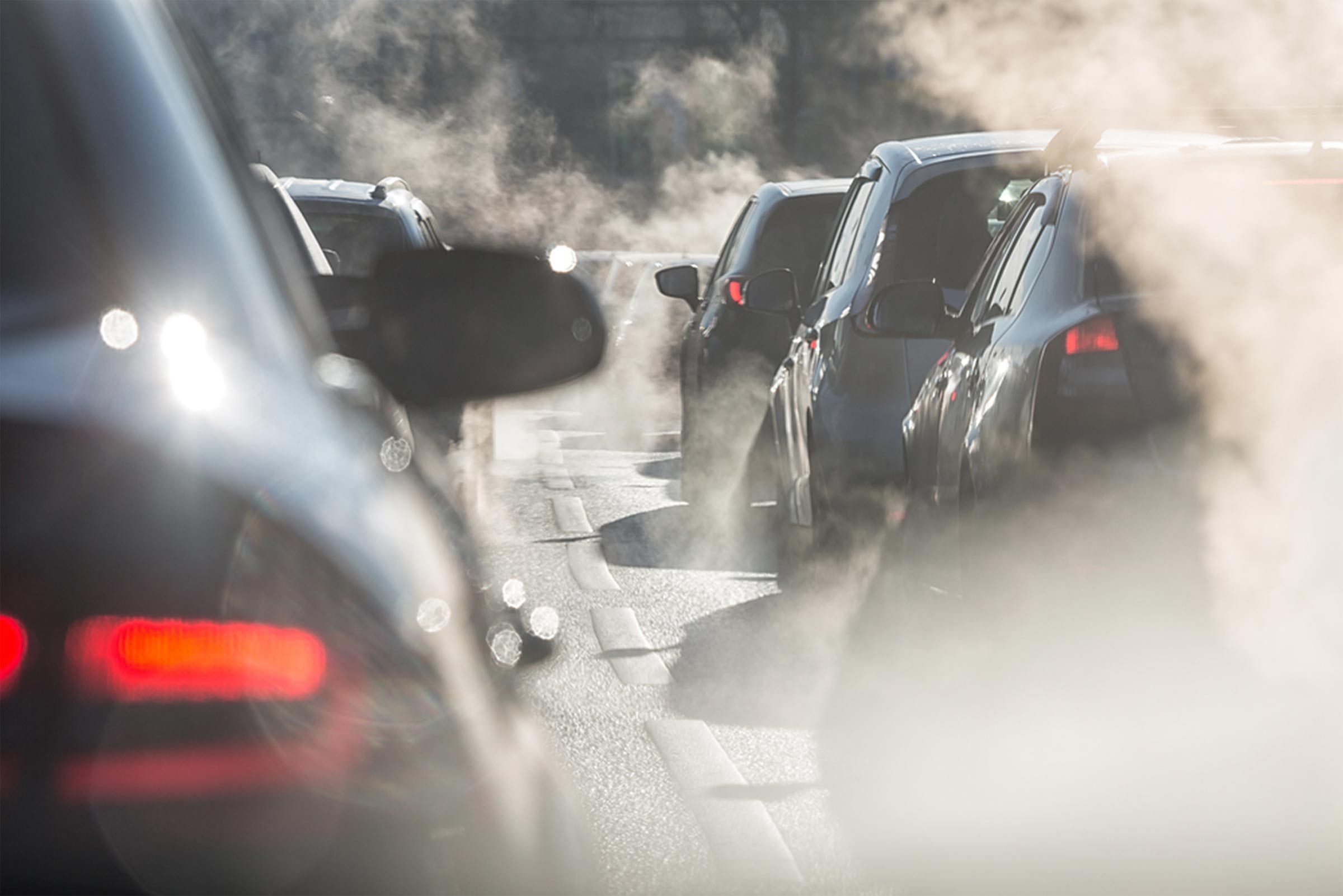
Living with dirty air
In a study recently published in The Lancet Planetary Health, researchers crunched hospital admission data for 9.2 million Medicare participants in the Northeast and mid-Atlantic United States between 2003 and 2010. They found that even a small increase in levels of ambient particulate matter—itty-bitty specks of pollutants in the air—may lead to an increase in bone fractures and osteoporosis in older adults. If you live in a smoggy area, use an air purifier with a high-efficiency particulate air (HEPA) filter at home, avoid exercising outdoors when the air quality is bad, and get screened for osteoporosis. Next, combat negative effects on your bones with these easy habits that boost bone density.

